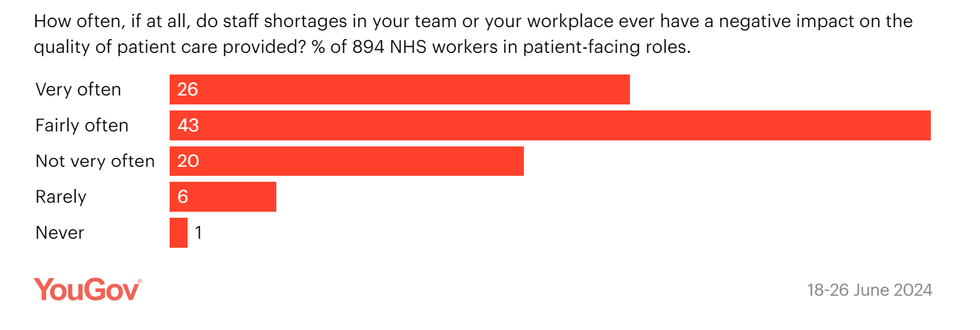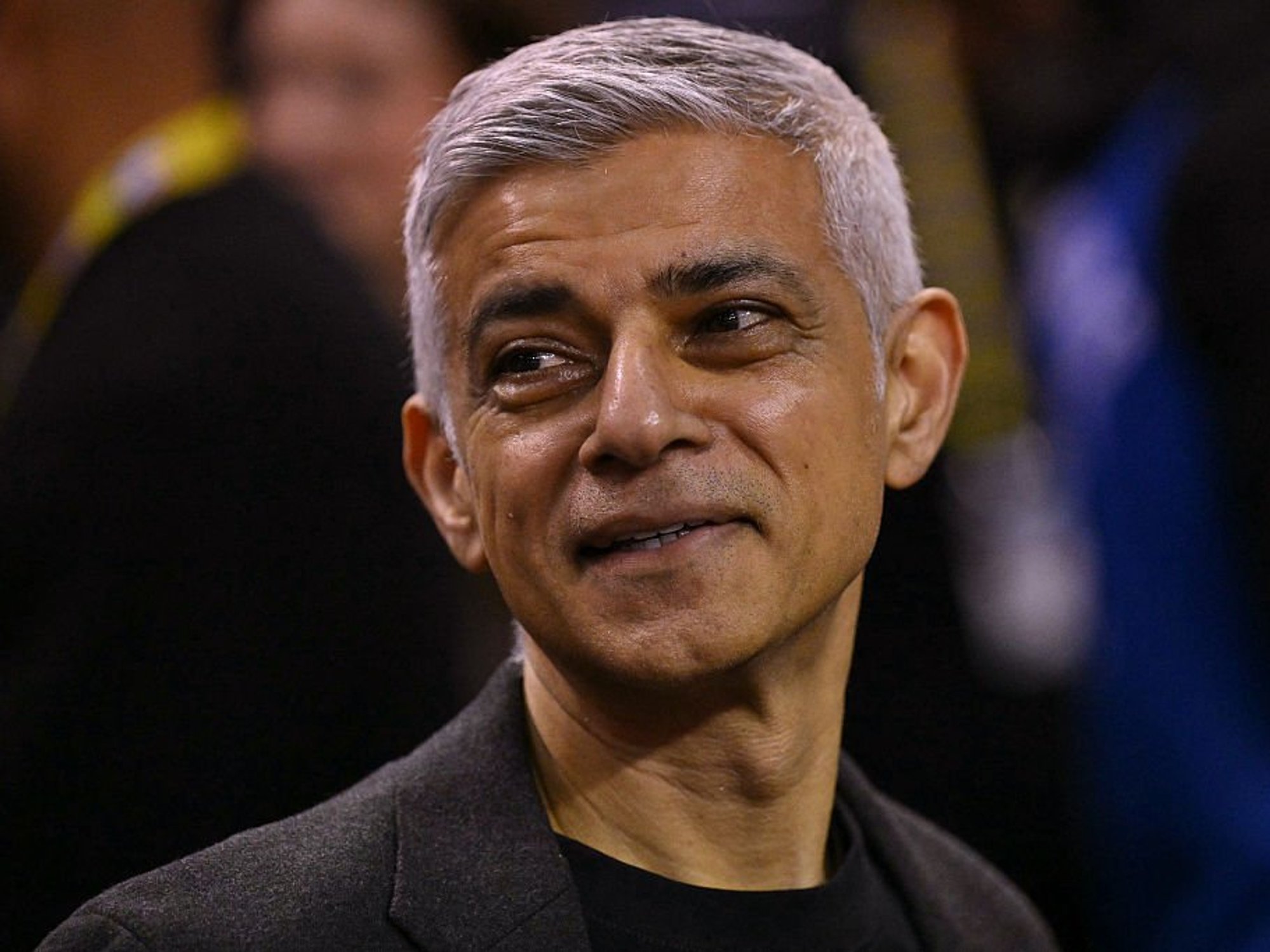NHS risks more staff shortages as quarter of workers plan to leave in five years

Staff shortages put increasing pressure on the NHS
|PA

A YouGov poll surveyed NHS workers about their experiences working in healthcare
Don't Miss
Most Read
One in four NHS staff are unlikely to be working in the healthcare industry in the next five years, according to a new poll.
These results risk putting even further pressure on the public health system which is already struggling with staff shortages and significant patient backlogs.
YouGov polled NHS workers across the board to find out about their experiences of working in healthcare.
The results were fairly negative with a majority of NHS workers experiencing burnout or emotional exhaustion at work at least some of the time most likely a contributing factor for those considering leaving the industry.

The results show 27 per cent of all NHS staff are not very likely to be working in healthcare in the next five years
|YouGov
The poll, which surveyed 1260 NHS workers between June 19 and 26, asked respondents how likely or unlikely it was that they would still be working in the healthcare industry in the next five years.
Some 27 per cent of those polled said that it was not very likely that they would continue working in the industry in five years with 14 per cent saying it was "not likely at all."
Furthermore, one in eight go further with 13 per cent saying they were planning to leave the NHS within the next 12 months.
The experience of burnout and exhaustion of NHS staff in the industry could go some way to explain why workers are so divided over recommending a career in healthcare to a family member or friend.
Almost half (47%) say they would not recommend a career in healthcare to acquaintances, while 42 per cent say they would.
A further 11 per cent of respondents did not know if they would recommend it.
An ageing population is expected to place more pressure on the NHS in the coming decades, which the NHS could struggle with as more staff choose to leave.
A shortage of workers not only affects working members of staff but the quality of care provided to patients.
A majority of healthcare workers in patient-facing roles (69%) say the quality of care is often negatively impacted by shortages.

The poll found 69 per cent said staff shortages often have a negative impact on patient care
|YouGov
LATEST FROM MEMBERSHIP:
- Yvette Cooper under fire for taking credit for drop in small boat numbers in July and August
- Get FIVE free entries to the Great British Giveaway when you become a GBN member in September
- A digging job is 'crucial' before planting fuchsias - how to care for the plant
Only 27 per cent of respondents said the shortages do not frequently impact patient care.
According to the British Medical Association, in comparison to other nations, England has a very low proportion of doctors relative to the population.
The average number of doctors per 1,000 people in the Organization for Economic Co-operation and Development (OECD) nations is 3.7 but England has just 2.9.
In comparison, Germany has 4.3, Spain has 4.5 and Austria has 5.45, according to the latest figures from August 2024.
This problem long predated the pandemic with the NHS having carried stubbornly high unfilled vacancies for years.










